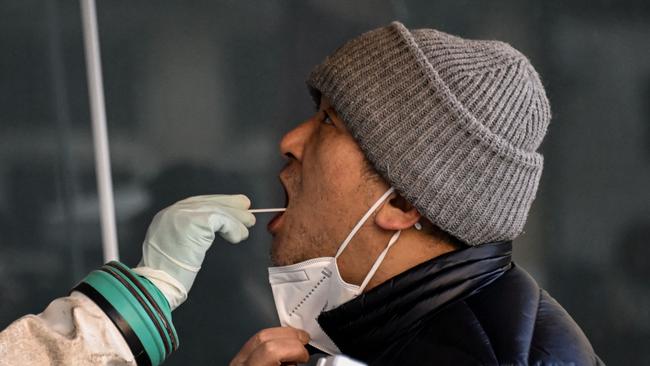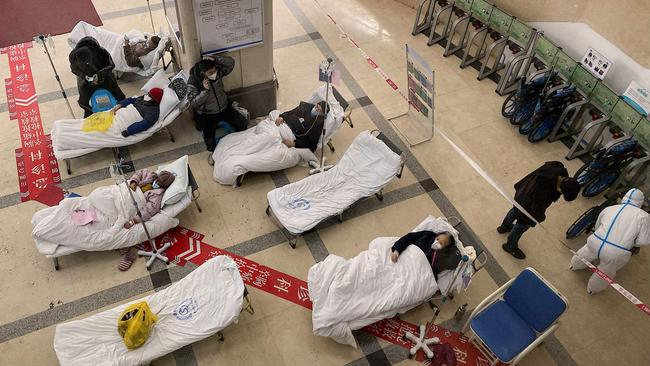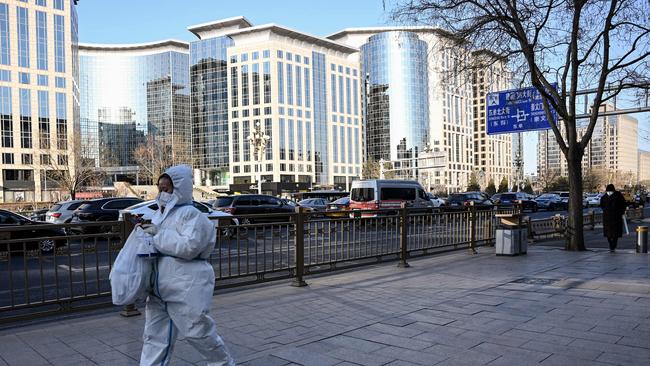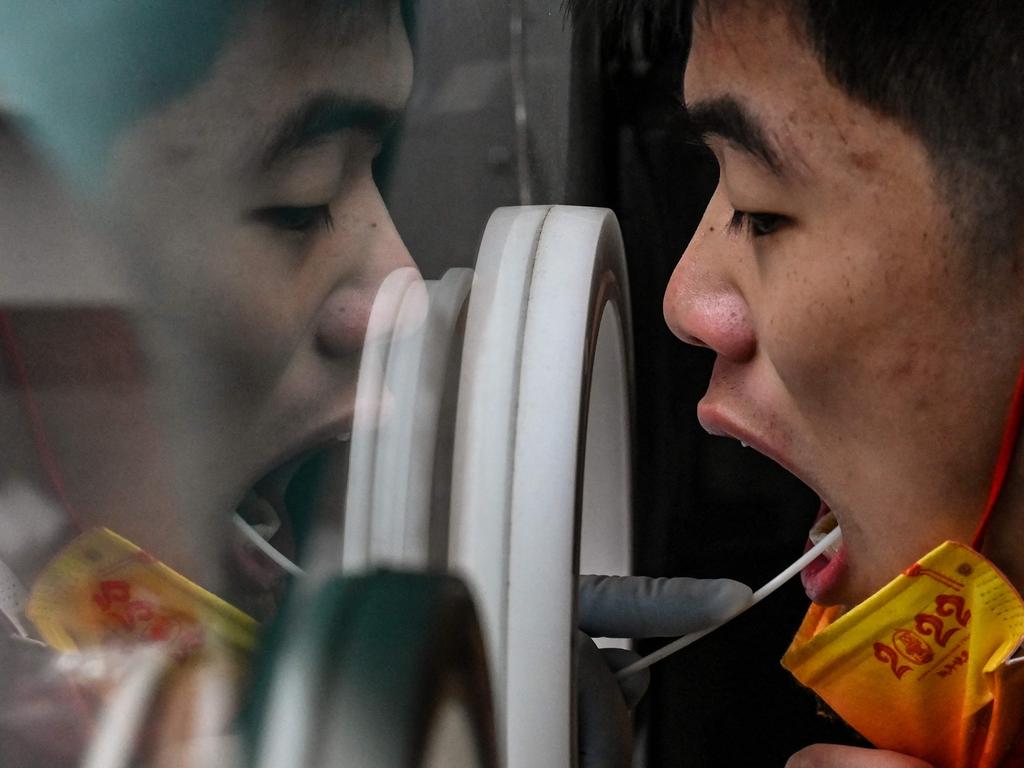China’s Covid crisis shows limits of autocracy
President Xi abruptly abandoned harsh restrictions after mass protests — with 250 million Chinese infected with the virus.

It was the speed of the reversal that was so telling. Less than a month ago, China was insisting its “zero Covid” policy remained the only way to face down the pandemic. “Facts have fully proved that each version of the prevention and control plan has withstood the test of practice,” the People’s Daily dutifully intoned. The leadership’s “resolute and decisive measures” would continue. But then, even as President Xi urged ever greater vigilance, local authorities began taking matters into their own hands. In Beijing, they opened the gates of compounds where infections had been registered, a break from more than two years of on-off, months-long lockdowns. Guangzhou, the southern industrial hub next to Hong Kong, lifted the requirement for mass daily testing.
China’s students were protesting against their unfree lives, and there is little the Communist Party dislikes more than that. But things have changed even in elite Beijing politics. Instead of staring them down, using all means available, Xi saw a wind blowing and decided, apparently on the spot, that he had no choice but to bend its way. Within days lockdowns, mass screenings - all the curbs that had kept China well when the rest of the world was sick, but which were finally becoming unsustainable - were abandoned without notice. The virus spread, with the speed with which the rest of the world is only too familiar. Coronavirus is now rampant, though no one knows how many people have it, since testing has stopped and hospitals are overwhelmed. Some companies have suspended work, as all staff are suffering simultaneously. Queues of hearses wait at the crematoriums.

Xi’s predecessor-but-two as China’s paramount leader, Deng Xiaoping, abandoned the Cultural Revolution 45 years ago more cautiously, but equally decisively. He allowed the development of a market economy - in provincial towns and villages first, then at a national level - with a grudging motto: “Open the windows, even if the flies come in.” Xi has put a new spin on this. Flies have come in, and our duty is to swat them, he says. China’s rip-roaring capitalism - led, supervised and exploited by state companies and party officials - has created American-style inequalities. So billionaires have been arrested, at first the corrupt ones, pour encourager les autres, and then ones who simply seemed more successful at running things than the party itself, a discomfort for autocrats.
And so in education. Millions of Chinese have now studied abroad, while English-language teaching at home, pursued ruthlessly by tiger parents, has introduced smidgeons of western ideas to the masses. There was a dangerous moment coinciding with Xi’s rise to prominence. As vice-president, he was in charge of China’s “coming out” moment, its hosting of the 2008 Olympics. But it was almost spoilt when the dissident, later Nobel Prize laureate, Liu Xiaobo led a rebellion of the nation’s intellectuals, demanding democracy. Now schools offering overseas curriculums like the international baccalaureate have been circumscribed, and at universities there is a new emphasis on ideological training.
To some countries, the apparent success of China’s technocratic authoritarianism has provided a tempting model. The Communist Party has not fallen apart, as so often predicted. Even now, at this moment of crisis, implosion is not upon us. With its opaque statistical methodologies, forecasts of economic growth for China are more art than science; but if, as most suggest, it rises by a diminished 3-5 per cent this year and next, that does not look so disastrous from the perspective of austerity Europe and America.

Yet Xi’s chaotic U-turn, and the 1-2 million deaths now likely to occur in short order, do offer an important lesson about the “efficiency” of authoritarian states. Because they have no public forum in which to negotiate the trade-offs involved in policy formation - to discuss which flies can be allowed to buzz and which must be swatted - government tends to move in a unilinear fashion. The virtue on which the leadership is currently focused, whether it be egalitarianism under Mao, economic growth under Deng, or social cohesion under Xi, can prosper, earning admiration from those elsewhere who value such things. But they ignore the egregious flaws that build up under the surface, often obscured by state cover-up. Western leftists worshipped Mao, ignoring the mass murder that underlay the utopian communes. Businessmen loved China’s economic growth, brushing aside human rights concerns and positively enjoying its lack of free trade unions and environmental legislation. Now “strong” leaders from Viktor Orban in Hungary to Crown Prince Mohammed bin Salman of Saudi Arabia look at America and Europe’s modern moral confusions and hold up Xi’s “big China” as an exemplar of patriotic, purposeful unity.
But purposeful unity is not human nature, which resolutely persists. Populations cannot be willed into the service of the emperor for ever. And so things crumble, as the next crisis gives rise to the next mind-boggling shift in direction. Countries that have pursued the China dream, thinking it was centralised power that fuelled its rise rather than Deng’s liberated entrepreneurialism, are already starting to suffer. Sri Lanka, showpiece of China’s “Belt and Road initiative”, has collapsed. President Sisi of Egypt, who in obedience to new fashions locked up liberal writers and built new mega-cities in the desert, has been forced to go to the IMF for a bailout. Now China itself is heading into an unknowable Covid future. Time to let in more flies.







To join the conversation, please log in. Don't have an account? Register
Join the conversation, you are commenting as Logout